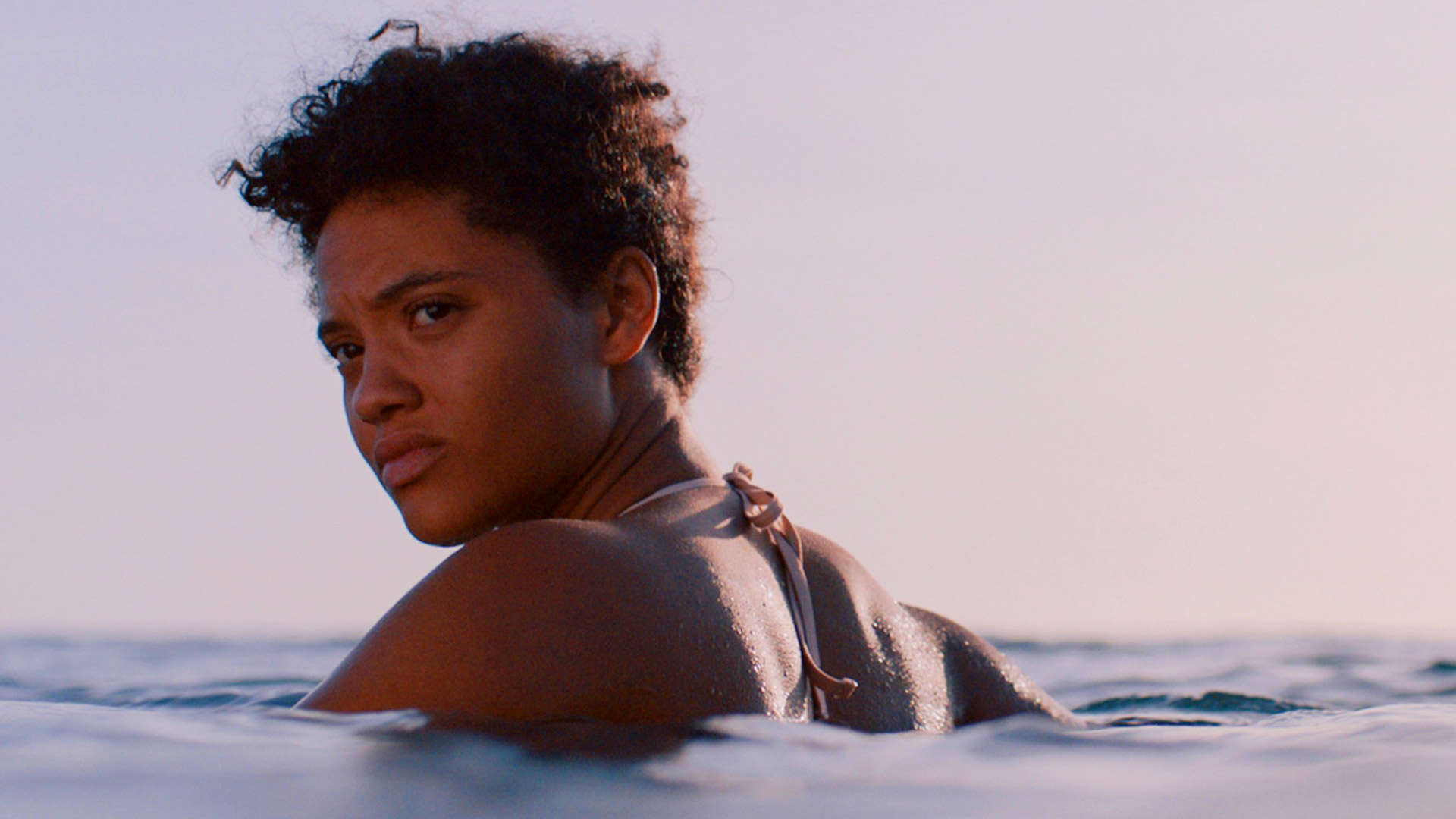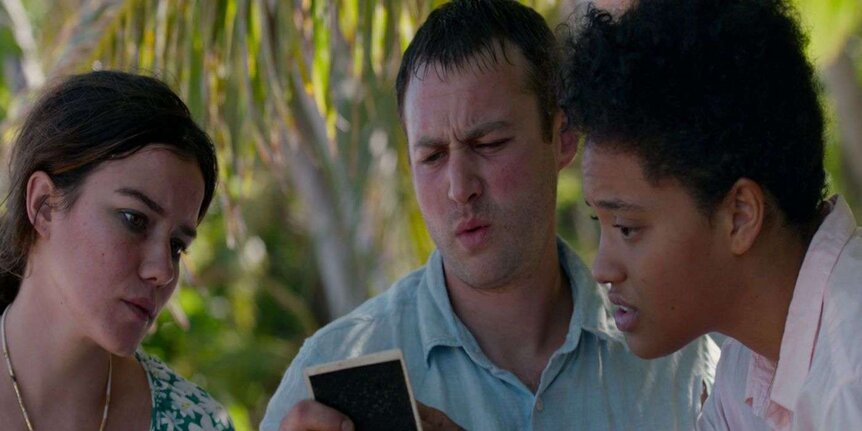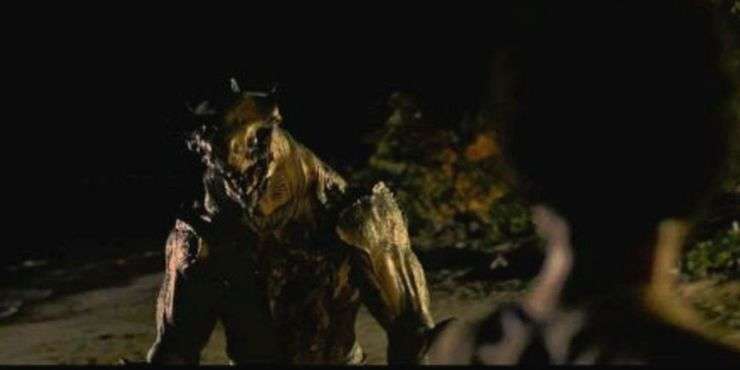Create a free profile to get unlimited access to exclusive videos, sweepstakes, and more!
Gaslighting in Justin Dillard's Sweetheart

The horror genre can be a powerful vehicle to tell the struggles of marginalized groups of people. When these stories are created by the very people who know these struggles in their everyday lives, the impact is everlasting. That level of authenticity is incomparable to some of the "what if" kind of premises created by people who likely have never dealt with the types of oppressions they imagine for themselves on screen. Black horror, specifically, is hauntingly unique in the way that parts of the story are still very alive for the creators and some of the viewers once the credits stop rolling.
Justin Dillard's Sweetheart has quickly worked its way onto my list of favorite horror movies. It has all the qualities of a classic creature feature that I enjoy and there is a Black final girl, which allowed me to connect with the movie in ways I wouldn't have otherwise. Kiersey Clemons gives a strong performance as Jenn, a Black woman marooned on a remote island with a creature that tests her in ways that go beyond her survival skills. One of the things that jumped out to me while watching Sweetheart was how much Jenn's final battle with the creature felt incredibly cathartic to me because of the kind of gaslighting she had to endure before forcefully taking her own validation. There was a level of violence to it that I not only understood, but felt was deeply necessary. Jenn experiences gaslighting she does to herself and also receives from others, and both experiences were relatable.
The first day Jenn washes up on shore with her fatally injured friend, Brad, she slowly discovers something is amiss on the island. She finds decades-old belongings of people who were either visiting or marooned just like her. The next day, she finds a mutilated shark that washes up on shore after a storm, and her friend Brad's half-eaten remains. Something is clearly wrong, but Jenn begins to question what she's seeing — a move that makes sense given the trauma of the entire situation and how it would be far easier to disassociate and not deal with whatever is actually happening. Unfortunately for Jenn, she doesn't have that luxury, as the cause for both the shark and her friend makes its presence known later the next night. Her survival throughout the movie depends on her ability to believe what's happening to her while adapting as best she can as the threat gets closer.
This is a very real sentiment I can personally understand when I think of the monster as being everyday things I have to deal with as a Black woman living in America. To me, the monster of Sweetheart represents several things, most of which are subgenres of systemic racism — everything from police brutality to the smallest microaggressions. Since Jenn is a Black woman, the monster also becomes a particular form of racism and sexism that Black women encounter in our daily lives, also known as misogynoir. While the monster is horrifying in the ways it stalks Jenn every night, the horror begins when Jenn deals with her own doubts about what's actually occurring. I can't afford to gaslight myself into thinking issues the monster represents aren't real either, especially when there are already enough people willing to do that heavy lifting for me.
After a few nights on the island spent fighting for her life against an enemy that exists and is not a figment of her imagination, Jenn is joined by her boyfriend, Lucas, and friend, Mia, both of whom are white. They'd been floating in a life raft for a few days before finally washing up on the island. Immediately Jenn tells them they need to leave the island as soon as possible because it's not safe. They believe she's making it all up, especially what happened to Brad. They accuse her of killing and possibly eating Brad — but with the amount of blood in the raft and the evidence of a half-eaten body of another fellow traveler just a day before their arrival, it seems as though they are projecting their own horrific acts onto her. The fact that Lucas and Mia are white matters because of how whiteness and Blackness interact in real life and what that means in a movie where the monster is representative of so many various aspects of oppression.
Even in such a dire situation, Lucas and Mia still believe they can afford to ignore Jenn's warnings and dismiss her valid fears. She has been at this for days and yet they dismiss her. Their response to her is funny in the tragic way that painfully obvious allegories to members of marginalized groups often are. In a moment when listening to a Black woman could potentially save their lives, they don't and almost cost Jenn her own in the process. It hits way too close to home. Mia's gaslighting of Jenn is painfully real because whatever sisterhood is supposed to exist between white and Black women doesn't at that moment. That they are both women doesn't matter. Mia doesn't hesitate to bring up Jenn's past to invalidate her fears and concerns further. It's not convenient for Mia to take Jenn's word, so she doesn't. To do so would mean she has to go back out onto the water, even though Jenn has done a great deal of work in terms of preparation and making sure they have some kind of supplies.
Lucas was no better than Mia and just as harmful; even his relationship to Jenn as her romantic partner means absolutely nothing as he questions her at every turn. It's not enough to simply be with Black women, especially if all you're going to do is minimize their experiences to protect your own white fragility and cause them further harm in the process.
The fact that things get worse for Jenn when they arrived versus when she was dealing with the monster alone on the island speaks volumes. Jenn tries to leave the island without them, but they attack her, causing her more harm than the beast had in the days she was on the island alone. Unfortunately for them, this is a horror movie, and the consequences of their actions is losing their lives.
By the time the movie finally gets to the showdown between Jenn and the monster, I was more than ready to see her not only defeat it but also to take the validation she's been fighting for since she arrived and so rightfully deserves. She removes the monster's head — not as a trophy, but physical proof of what she endured and then conquered.
In the end, Jenn finds peace in knowing that whether she's found dead or alive, whoever finds her will hopefully piece together her heroic story — and be forced to accept what they see for what it is.






























